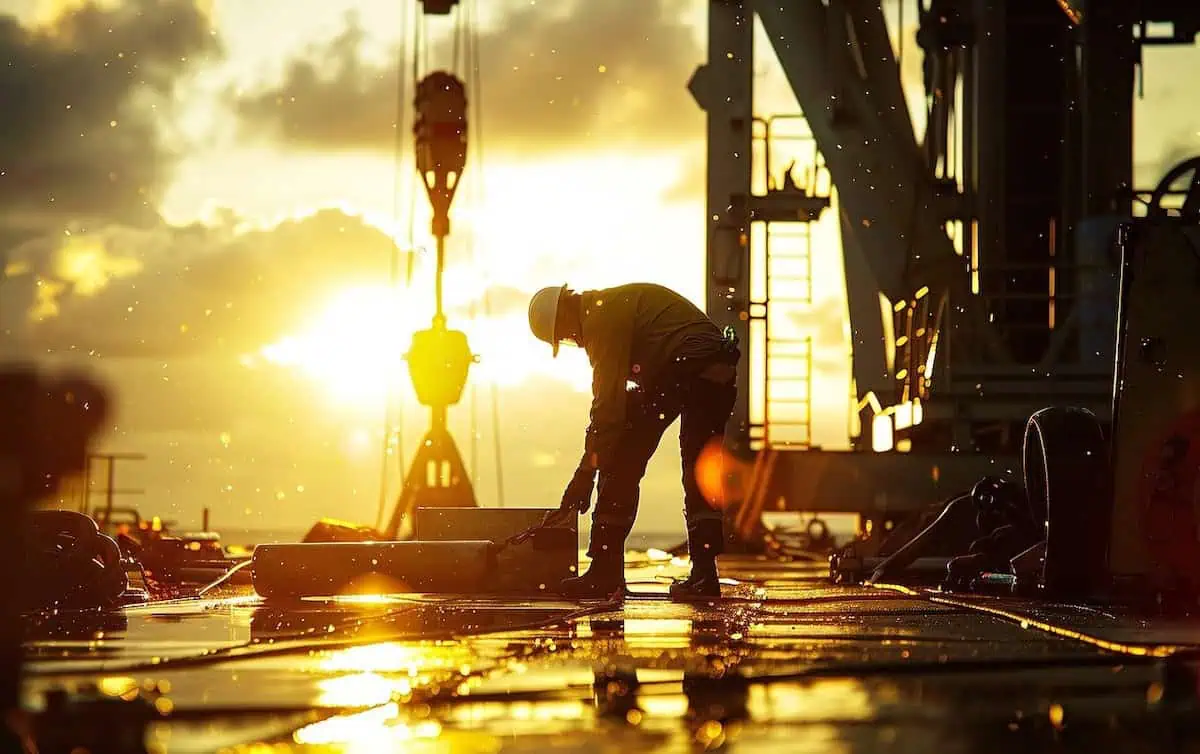Offshore drilling is a key part of the global energy industry, providing significant economic benefits and powering industries worldwide. However, it is also one of the most dangerous jobs, with risks like equipment failures, severe weather, and major accidents.
Addressing personal injury cases in this field is vital to ensure worker safety and compensation, maintain operational integrity and morale, and meet legal and ethical standards.
Personal injury cases in offshore drilling are complex due to the complex maritime laws and worker compensation rights involved. This article will break down the many aspects that make these cases challenging, including the unique risks workers face, the complicated legal frameworks, and the difficulties in proving liability.
It will also discuss the importance of medical documentation and suggest effective strategies, such as hiring a Beaumont personal injury lawyer, for maximizing compensation.
The Unique Risks of Offshore Drilling
Offshore drilling involves unique risks that set it apart from other industries. Workers face dangers such as equipment malfunctions, bad weather, and the potential for major accidents. Equipment failures can cause serious injuries and environmental damage. Unpredictable and harsh marine weather makes it harder to maintain safety and respond to emergencies.
Major accidents, though rare, can cause multiple casualties and significant environmental harm. These risks highlight the need to understand the challenges in injury compensation claims, especially with strict regulations and safety standards in place.
Each incident requires careful examination of the causes, liability, and safety measures, making it difficult to secure fair compensation for affected workers.
Legal Framework Governing Offshore Injuries
The legal rules for handling offshore injuries are complicated, requiring specialized knowledge. The Jones Act allows seamen to seek compensation for injuries caused by employer negligence. The Longshore and Harbor Workers’ Compensation Act (LHWCA) covers other maritime workers, like dock workers, who are not considered seamen under the Jones Act.
Additionally, general maritime law provides extra protection for issues not covered by specific laws. Each legal option has its own requirements and benefits, making it challenging for injured workers to seek compensation. This process requires a thorough understanding of various laws and careful case preparation to meet complex legal standards.
Challenges in Proving Liability
One of the biggest challenges in offshore injury cases is proving who is responsible. Offshore job sites are constantly changing and often isolated, making it hard to collect evidence. There are usually few witnesses, so getting testimonies is difficult. Reconstructing accidents is also tough because the environment changes so much.
Because of these issues, it’s important to document incidents quickly and use technology to preserve evidence. This process highlights the need for careful attention and specialized knowledge for anyone seeking compensation in offshore injury cases.
The Importance of Medical Documentation
In offshore drilling injury claims, having thorough medical documentation is a must. Accurate and complete medical records are essential for proving the extent and details of injuries. This not only helps build a strong legal case but also ensures the injured person gets the right medical care.
Medical experts play a key role, as their evaluations can explain the cause, severity, and long-term effects of injuries, making the claim more credible.
To ensure thorough documentation, it’s important to have detailed initial injury reports, regular follow-ups, and precise medical evaluations. Documenting all medical interactions, from the first assessment to rehabilitation, can greatly strengthen a case.
Using electronic health records can help maintain accuracy and accessibility, further supporting the injury claim.
Strategies for Maximizing Compensation
Securing fair compensation in offshore drilling personal injury cases requires a clear plan from the initial injury report to the final settlement or court decision. Start by promptly and thoroughly documenting the incident and injuries to build a strong foundation for your claim.
Hiring an experienced lawyer is a must, as they bring specialized knowledge of maritime laws like the Jones Act and LHWCA, which are key to handling these complex cases.
Preparing your case thoroughly is also vital, including collecting evidence, medical records, and expert testimonies to support your claim. With these elements in place, you can negotiate more effectively with insurance companies or employers. If the case goes to court, this preparation ensures all necessary information is available, increasing the chances of a favorable outcome.
Addressing personal injury cases in offshore drilling requires a full understanding of the unique risks, complex legal frameworks, and challenges in proving liability.
The dangerous nature of offshore work, coupled with the specifics of maritime laws like the Jones Act and LHWCA, demands meticulous documentation and strategic planning. Ensuring detailed medical records and seeking experienced legal representation are vital steps in building a strong case.
By methodically documenting incidents, collecting evidence, and preparing thoroughly, injured workers can improve their chances of securing fair compensation, upholding safety standards and justice in this high-risk industry.
Article and permission to publish here provided by Web Market Pros. Originally written for Supply Chain Game Changer and published on Augst 12, 2024.
Cover image by Vilius Kukanauskas from Pixabay.

